The War Widow Read online
Page 11
‘There were plenty of civilians who egged the war on,’ her assistant said, his body tense as a fist.
‘Sam, you’re right about that, but it’s not that simple.’ She thought about the pleasurable hours spent with her mother and father in Ciro’s Café on Elizabeth Street, Luigi Rosina regaling them with stories between mouthfuls of pasta. She thought of all the Italians she knew in Sydney and how they’d become ‘enemy aliens’, some of them after having fought in the Great War for Australia. Old men, kind men and their families put into camps. ‘Thousands of Italians were put in internment camps here after fleeing fascism,’ she reminded Sam. ‘Regardless of their age or their health or what they thought of the war they were put behind barbed wire.’ She shook her head. ‘Forget it, Sam. I’ll be back,’ she said, disappointment in her voice.
This was a losing argument. She couldn’t blame Sam for the hatred he felt after watching his mates blown to pieces, after what he’d suffered himself. It was far too soon. Or perhaps it would always be too soon. He likely wouldn’t be working for her if that Italian thermos bomb hadn’t mangled his hand, but still, this wasn’t what she wanted in an assistant. Maybe a black dress is bad luck, she thought. Or a ‘midnight’ dress.
Not managing to suppress her frown, Billie made for the powder room, where she fixed her Fighting Red and powdered her nose, staring in the large gilt mirror. The person she saw in the reflection was alive with determination of a puzzle to solve. There was frustration, yes, but she was alive. It was a bit of the old Billie. The Billie who’d swung into action in Europe. She pulled herself together and found that she knew that face, knew that look. She appeared fresh, despite the hour, and she hoped that by the time she returned to Sam he would have calmed down. She liked her assistant – he was a solid worker and she had no regrets about hiring him – but she didn’t want to deal with his Italian issue right now when they ought to be focusing on finding Adin Brown and figuring out his connection with The Dancers.
When Billie returned from the powder room, Sam was not at the bar. She slid back onto her stool and sipped at her champagne, thinking it had perhaps started to go flat. The taste wasn’t what it was, and neither was The Dancers. The crowd had almost thinned out entirely; perhaps only a dozen couples were still dancing. Billie took another sip of her drink, swallowed, decided it didn’t taste any good, and pushed it away, leaving the last few sips. She and Sam should leave, before they made themselves too obvious, if that ship hadn’t already sailed. Had all of the staff been instructed not to speak with her? She thanked the barman from afar, tipped him an extra shilling, leaving it by her near-empty glass, and headed for the door, hoping to pick Sam up along the way.
‘We should head out,’ she said to him when she spotted him loitering near the main doors. She leaned against his arm, her head dipping onto his shoulder. ‘I got the drinks . . .’ She’d slurred her words, she noticed. ‘I paid up,’ she tried again, more successfully.
Sam frowned, and looked down at her. ‘Look, I think you might have misunderstood me about the Italian thing . . .’ He trailed off. ‘Billie, I have to say, you look tired.’
‘Thank you,’ she replied somewhat sharply, and stood to attention. If he normally had a way with words, it wasn’t the case tonight.
‘I didn’t mean it like that. You just don’t seem . . . yourself,’ he continued, searching her face. ‘Maybe we should put it off until another night. Or you should let me go instead,’ he said.
‘What are you talking about? Sam, I’m this close to finding out why Adin was here before he disappeared.’ She held her fingers up, an inch apart to illustrate. ‘It’s the only real lead we have apart from a slip of newspaper. It’s something to do with Boooer, I’ll bet.’
Boooer?
She did feel a bit tired, and a bit unclear, and rather suddenly too. It was late and it was time to go, but she’d never let a little tiredness dictate when to turn in, or to turn down an opportunity to forward a case. Fresh air would help. That doorman did know something. He was nervous and people that nervous often had something to be nervous about.
She’d see him. She’d know something then. And if not, this dress was proving very poor luck indeed.
Chapter Eleven
The People’s Palace was, suffice to say, not much of a palace. It was a rendered-brick eight-storey hotel and lodging house at 400 Pitt Street, boasting ‘VERY MODERATE’ rooms, in capital letters so it had to be true, with ‘Hygienically prepared meals and tastefully served foods, clean and comfortable sleeping rooms’.
For some years the Palace had been under Salvation Army management. Billie was aware that they ran a hostel of sorts out the back, accessed by a different entrance, for those who weren’t able to afford the hotel prices. The Victorian-era building had at some time housed a public bath and been a meeting place for swimming teams, thanks to an impressive pool, since filled in and bricked over. Times had changed. There were certainly no athletes meeting here now, and at nearly one-thirty on a Saturday night it looked quiet inside, though the streets were still inhabited, mostly with men, some in uniform, evidently trying to find trouble to get into. With so many about, you wouldn’t have thought it was already hours after the infamous ‘6 o’clock swill’ before the public bars closed. In fact, Billie realised she hadn’t spotted another woman since they’d left the theatre district. The hotel was a mere walk away, not far from Billie’s Daking House office and the Central Railway and tram lines. The air was doing her good, even if she didn’t care to advertise to Sam that the champagne had really gone to her head, making her feel queer. The idea of her own employee coddling her wasn’t acceptable. She was made of stronger stuff than that.
There was a greenish glow to the lighting in the lobby of the Palace, visible through the large front windows as Billie and Sam approached. Billie pushed open one of the main double doors, looked over her shoulder and caught Sam slipping into the shadows of the street. If she didn’t emerge in half an hour he would come up to room 305 to check on her. That was the plan. She knew it was her plan but her head was starting to ache fiercely, perhaps on account of the hour or that last glass of champagne and, despite herself, she was starting to regret being there.
Stay sharp, Walker.
The lobby was sparsely furnished with some weathered couches and chairs, a lamp that glowed about as brightly as a single candle, and a table pushed against one wall with what seemed to be brochures propped up on it. There was a sound in an office behind the bell desk, perhaps the stirring of a night watchman who was, at this moment, not doing what Billie would class as a top-notch job. That suited her fine. Otherwise, all was quiet. She looked around one more time with a sweep of her tired eyes, and on realising that Con Zervos was nowhere in sight she pulled the stairwell door open and started to climb. Her legs ached sharply, and she reminded herself that she just needed to get through the next hour, then she’d be back in her own bed to sleep things off.
Stepping into the corridor on the third level, she encountered yet more quiet, save for the muted sounds of a radio playing in a room nearby and the muffled noises coming from Pitt Street below. The walls weren’t cardboard here, she mused; they just didn’t soundproof the new places like this. A light glowed from beneath a door three rooms away. That would be 305, she guessed, but as she approached she saw it was 304. No light showed under the door to 305. Good goddess, she felt tired. So tired. Something was most assuredly not right.
Billie put her hand on the knob of room 305 and the door creaked as it moved. It had not been latched.
A chill went up her spine, and she stepped back, her heavy head clearing instantly with the sense of something being very wrong. Instinctively she reached down, hiked up her dark crepe dress and pulled the little Colt from her garter. She fixed her finger over the trigger, the mother-of-pearl handle warm from the heat of her thigh. Despite the spinning in her head only moments before, her hands were steady. She put one foot forward and her toe eased the door open.
‘Mr Zervos?’ she asked the coal-black room.
There was no answer.
Billie reasoned she might have missed him as he went down to the lobby to wait for her, he going down one set of stairs as she climbed another, but her instincts tossed the notion away. That wasn’t what this was. The little woman in her tummy, the little woman who knew things, knew that this was something else entirely. A knowledge that came from every bit of this puzzle that didn’t quite fit yet, every observance, every signal. There was a cloying smell in the room that made her feel jumpy, and the heaviness of her head was becoming more distinct, though adrenaline was pushing it back as best it could. She was not safe. What was that smell? It was metallic, like blood or vomit or the sickly sweat of a fever. Someone needed to open a window. She didn’t want to walk through that dark doorway, but she needed light.
Billie reached along the wall to her right, her fingers searching like spiders until they found a protruding light switch. She flicked it down. The light came on with a start, illuminating the small single room as a lightning bolt would have done, revealing a diorama of horrors then going out, plunging her back into darkness, before flickering on again with a faint and steady hum.
Billie did not scream. She did not flinch. She just looked at him.
Con Zervos’s uniform was hanging over a chair, but he wasn’t in it. He was dressed in a suit with some of the shirt undone, but he was on his back on top of the white bedsheets, his eyes bulging and unseeing, his tie wrapped tightly around his neck, making everything above it blue. He was looking straight at her, through her, one hand at his neck, the other hanging down at the end of a dangling arm and almost touching the patterned carpet of room 305.
Chapter Twelve
Waiting for water to boil was nothing on waiting for the police to arrive at two in the morning on a Saturday night at the People’s Palace. In the green-lit lobby, Samuel Baker sat next to Billie Walker on one of those threadbare couches she’d spotted earlier, and tried from time to time to rouse his boss as she unwillingly drifted off to sleep. The adrenaline had passed and now she felt tired again, and queer, only it was so much worse.
You’re going to get me into trouble, lady, Zervos had said. You’re going to get me into trouble.
Time moved strangely. There were voices, and then nothing, and then she blinked and wondered how much time had passed. The night watchman was confused and sheepish and drifted by at odd moments.
‘Lady, we’ve just been up to 305,’ someone was saying now. ‘We don’t know what kind of prank you are pulling here but we don’t appreciate it one bit.’
Billie opened her eyes and focused them with effort. It was a red-haired cop, heavy-set and cross, looming over her and staring with green eyes shot with red veins. Watching him was like observing a scene through several layers of foggy glass. She became aware that there were two police officers there. They seemed to have been there for a while.
‘Sorry, officer, what?’ Billie replied. Her eyes threatened to close again and Sam elbowed her in the ribs.
‘There is no one in room 305 of this hotel,’ he reiterated curtly. ‘This Zervos character you’re talking about isn’t in.’
‘He’s in. He’s in all right. He’s dead. It’s . . . It’s terrible. That poor man,’ she rambled, his anxious words repeating in her mind. You’re going to get me into trouble . . .
The officer looked at her with utter distaste. ‘Take her home,’ he said to Sam, and turned away.
Billie was confused. ‘I’ve been waiting for you guys for . . .’ She looked at the clock. ‘Forty-five minutes and you come here and tell me that a dead man has vanished.’
‘Did you go up there?’ The cop was talking to Sam now, ignoring Billie entirely.
‘Well, no,’ he admitted. Billie had instructed him to wait with her downstairs until the police came, though she’d never imagined it would take so long. How many bodies were found in this town on a Saturday night? Scratch that, she didn’t want to know.
‘There is no one in there. Get her out of my sight,’ the cop said to Sam, who put his arms under hers and pushed her up. ‘I suggest you get her to lay off the drink,’ he added as Sam helped her out of the lobby and into the fresh night air. ‘It’s not good for the ladies. It’s biology,’ she heard him say as the doors swung shut.
Billie was too tired to walk back inside and slap him.
* * *
‘Are you sure you don’t want me to take you up?’ Sam asked at the threshold of Cliffside Flats.
The night air was bracing; Edgecliff quiet. Billie shook her head stubbornly at her assistant’s suggestion, though she was swaying on her feet. What a queer feeling she had, the world swimming around her. Sam was frowning and searching her face. ‘I don’t need help. I’m fine,’ she lied to him, looking away. It was the drink, she was sure now. Those last few sips. They had tasted funny. Something hadn’t been right. It was the only way this made sense. Thank goddess she hadn’t finished it. But she’d be damned if she let her employee put her to bed, even if it appeared she’d been drugged.
‘I’ll call you in the morning,’ he told her, concern in his voice. Billie nodded and let herself into the building, fumbling with the keys, as he watched. The front door shut behind her, locking out Sam and the sounds of the night with him, and her legs burned as she climbed the few stairs to the small lift. She pressed the button and got inside the timber-lined cab, and as the inner door closed she caught a glimpse through the square glass panel of Sam still standing at the front entrance of the building, watching to make sure she got to her floor.
It was half past two in the morning when Billie tossed her keys onto the hallstand and missed. Shaking her head, she began undressing as she approached her bathroom, items of clothing trailing behind her like breadcrumbs, first the right shoe, then the left, then an unclipped stocking that her tired brain still couldn’t quite leave on the floor. She looked at it with blurry vision. Blasted expensive things. She scooped it up, which took more effort than was comfortable, fishing in the half light with clumsy fingers. She propped herself against the back of one of the dining chairs to unclip the other stocking and roll it down. The bathroom. She had to get there next. What a horrible night it had been. Horrible and mystifying. And her head felt awful.
Billie removed her makeup haphazardly, her bedtime habits too deeply ingrained to ignore completely. She filled a glass with water and gulped it down, then filled it again. She washed her hands and pulled her cursed crepe dress off before leaving the bathroom. Her head felt leaden, and she was pleased to make herself horizontal on her bed, still wearing her slip and underthings, including her garter belt, its clips dangling around her thighs. Her mother’s necklace was heavy on her neck. She tried the clasp and the blasted thing stuck and she gave up, instead pulling the earrings off and putting them both on the nightstand without dropping them. A small triumph. Struggling with the heaviness in her limbs, she shoved her Colt under her pillow, the closest place at hand. It was an effort to climb under the sheet.
She quickly sank into the mattress with a sick heaviness as the room turned darkly under her lids.
Chapter Thirteen
Dark, dark world.
Through the thin slits of vision his swollen eyelids afforded him, Adin Brown could make out only a mottled film of dark colour that shifted and shrank as he tried to focus, the dim light moving as if he were still underwater, still fighting for air, his lungs straining. Yet he could not be in water now, that much he felt sure of. This place was too gritty and dusty, too dry. The air itself hurt his eyes. His body itched and his head throbbed, and under his hand he felt things that were sharp and hard. Was he dead? Was this Sheol, the shadowy land of forgetfulness where he was destined to dwell, or the Hades his grandmama had warned him of? A place without his loved ones, without God?
He ran a hand over his face and found the surface changed, his flesh painful to touch and adorned with grit that fell in clumps. His hands were free, he realised
. He was no longer bound, the ropes that had held him were gone and the flesh where they had been was raw. He was no longer in the tub. No longer in that strange room. Had he been freed? Had he really been left to live after seeing the faces of his captors? The face of his interrogator? He turned his body over painfully, stretched out and kept feeling blindly, reading this new dark place as if by braille. He found something cold like iron, something solid. Did he bring his injuries into death? Should he not be free of pain if he was dead, or was this punishment? As if in answer, ears that had only heard ringing now heard something else – a roar. A deep, powerful roar was building. His hand shrank from the iron and he rolled over, finding more of it with the other hand. Under his body was dirt and planks of wood as well as lengths of iron, he now realised. And something was approaching, something building. The iron under his hand began to vibrate, harder and more urgently. He strained his eyes, catching only faint details. Tracks. Train tracks. He was on train tracks.
And a locomotive was coming.
Chapter Fourteen
She was right back in the moment.
The cold Vienna sky was red with flames, and they were huddled breathless against a line of low bushes, Jack with his Argus camera, Billie with her notebook and her keen eye, recording every detail. All around them was the violent crashing of glass and crackling of fire, shocking shouts and screams as mobs of civilians and SS soldiers gleefully smashed windows along the street and torched the shops within. All over the city it was the same, ferocious mobs spontaneously joining together – or was it planned, Billie wondered? She’d entered the synagogue briefly, moving with the crowd, Jack at her side, the two of them following the activity when it first began, and seeing the smashing of the pews and the curtain of the Ark torn to pieces they’d retreated once the mob lit fires and the synagogue had filled with smoke. Now hidden outside, obscured by the row of bushes across the street, they watched as a German soldier in those high leather boots kicked a man of about sixty to the ground just a few feet from where they were hidden. He was in his night shirt and held his hands aloft, pleading and unarmed, and with horror they watched helplessly, soundlessly, as the man was set upon by angry Austrians, men no fewer than twenty in number, who took turns to viciously kick and stomp, cheered on by the soldier, reducing what had moments before been a human man, wailing and crying out for help, into something Billie had not seen before, something broken and bloody, shattered and pushed into the cobblestones on which they’d stood only minutes before.

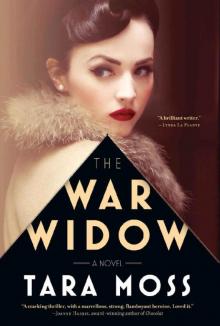 The War Widow
The War Widow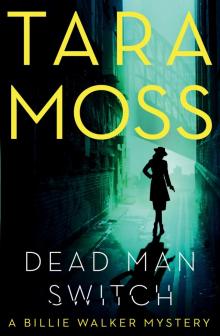 Dead Man Switch
Dead Man Switch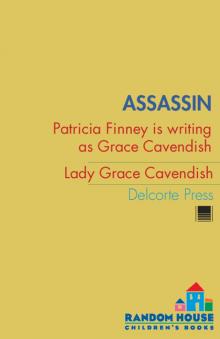 Assassin
Assassin The Mak Collection
The Mak Collection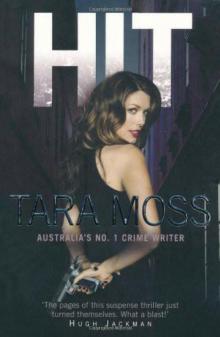 Hit
Hit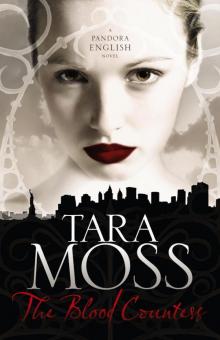 The Blood Countess
The Blood Countess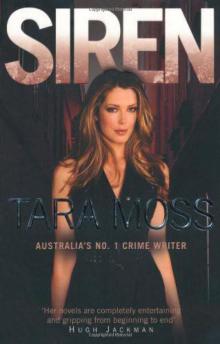 Siren
Siren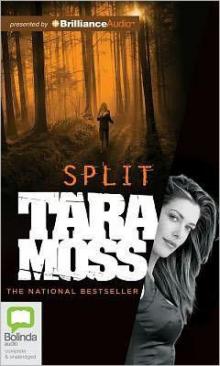 Split
Split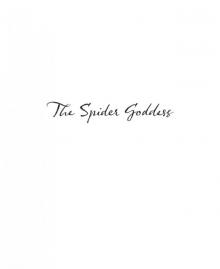 The Spider Goddess
The Spider Goddess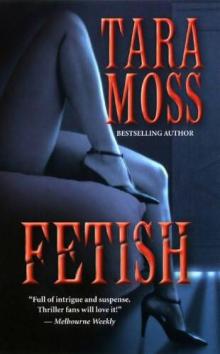 Fetish
Fetish The Skeleton Key
The Skeleton Key Covet
Covet